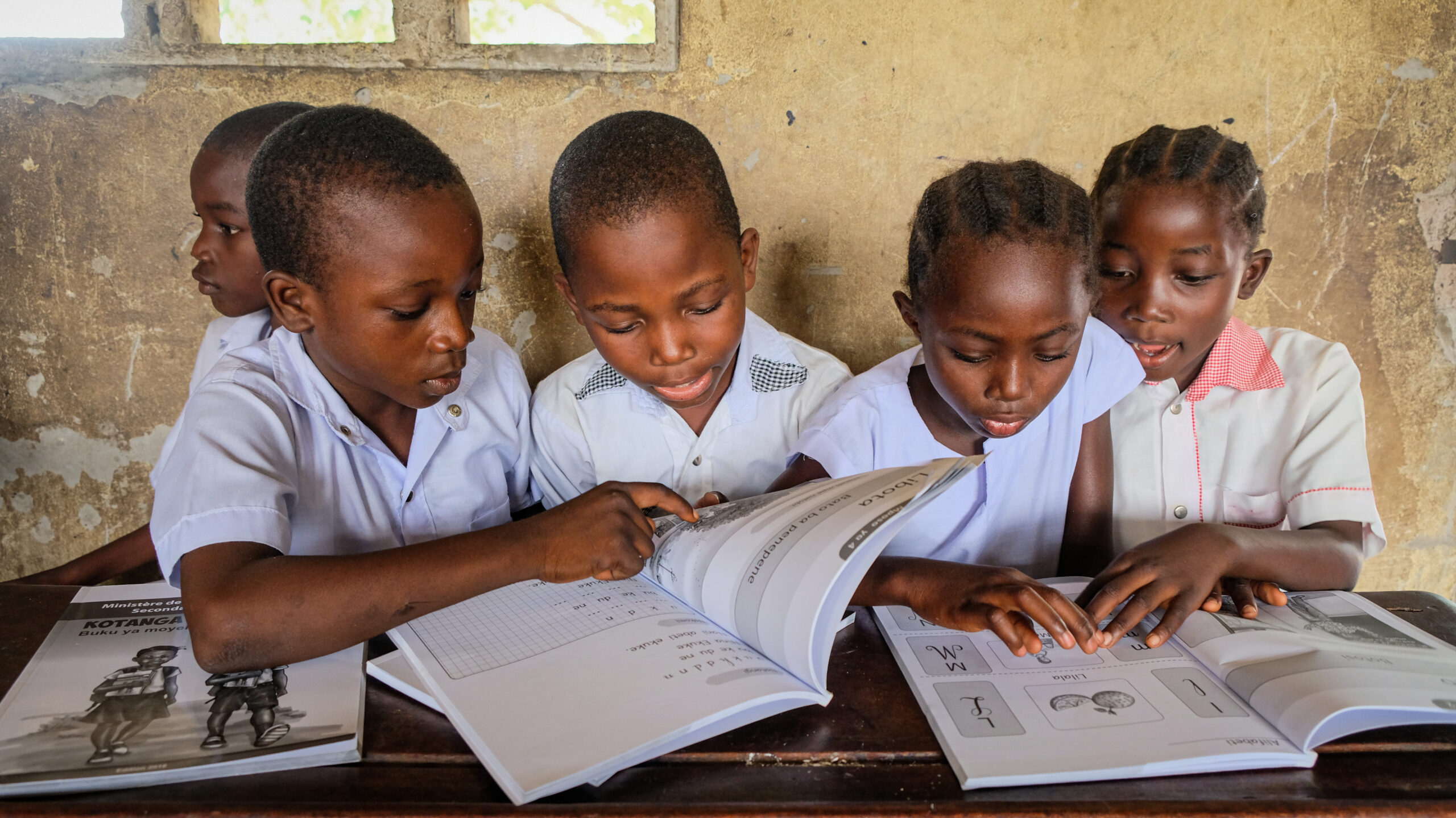USAID DRC Let’s Learn Together!

Project Director:
EDC Staff:
Jo Mushitu

Funded by:
USAID DRC
Partners:
International Rescue Committee (IRC) and Alfalit International
Focus Area:
Early Childhood Development & LearningEducation Workforce & SystemsElementary & Secondary Education
Services:
Design & DevelopmentImplementationPolicy
Region:
Africa
Duration:
2021-2025
Challenge
The Democratic Republic of the Congo (DRC) adopted a policy of fee-free primary education during the 2019-2020 school year, enabling over 4.5 million children to enroll in school. However, more than 7 million children ages 5–17 remain out of school. With rising enrollment and no proportional increase in qualified teachers, classrooms are overcrowded, and the quality of instruction remains a concern.
Through the USAID Let’s Learn Together! (LLT) activity, EDC aimed to improve education access and quality in the provinces of Équateur, Maniema, Tanganyika, and Kinshasa. LLT focused on helping children ages 6–9 develop foundational literacy skills to support their academic success at a grade 2 level or above.
Key Activities
The project carried out the following activities:
- Collaborated with community leaders, parents’ committees, and school management committees to enroll children into formal and nonformal learning pathways and support the retention of students.
- Adapted existing teaching and learning materials (TLMs) in both formal and nonformal schools to improve quality, enhance learning gains, and incorporate content and language resources relevant to the Batwa and Bantu communities.
- Used interactive audio instruction (IAI) to provide high-quality learner-centered literacy content to promote continuity of education and system resilience.
- Introduced a curriculum that helps teachers create supportive learning environments and teach students constructive ways to interact, resolve conflicts, and build positive relationships. Complement this with a community-focused campaign to encourage collaboration, reduce tensions, and promote a shared commitment to children’s education.
- Provided school-based training and support to promote teaching best practices.
Our Impact
- Reached over 20,000 learners, evenly split between girls and boys
- Improved teacher quality dramatically, from 3% delivering quality instruction to 75%
- More than doubled reading proficiency, with notable gains among Batwa, Bantu, and children with disabilities
- Delivered assistive support to children with visual and mobility impairments
- Engaged 900+ parents in adult literacy programming—95% of whom were women




